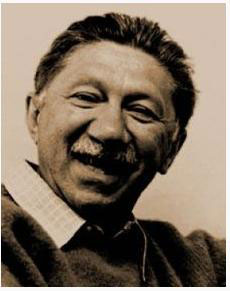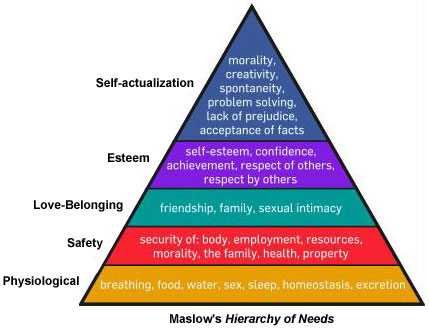Abraham Maslow
Maslow studied what he called exemplary people such as Albert Einstein, Jane Addams, Eleanor Roosevelt, and Frederick Douglass rather than mentally ill or neurotic people, writing that "the study of crippled, stunted, immature, and unhealthy specimens can yield only a cripple psychology and a cripple philosophy." Maslow studied the healthiest 1% of the college student population. Maslow's theory was fully expressed in his 1954 book Motivation and Personality. Some critics viewed Maslow’s pyramid as ethnocentric, that it neglected to expand upon the difference between the social and intellectual needs of those raised in individualistic societies and those raised in collectivist societies. Maslow created his hierarchy of needs from an individualistic perspective, being that he was from the United States, a highly individualistic nation. The needs and drives of those in individualistic societies tend to be more self-centered than those in collectivist societies, focusing on improvement of the self, with self-actualization being the apex of self-improvement. Since the hierarchy was written from the perspective of an individualist, the order of needs in the hierarchy with self-actualization at the top is not representative of the needs of those in collectivist cultures. In collectivist societies, the needs of acceptance and community will outweigh the needs for freedom and individuality.
|

